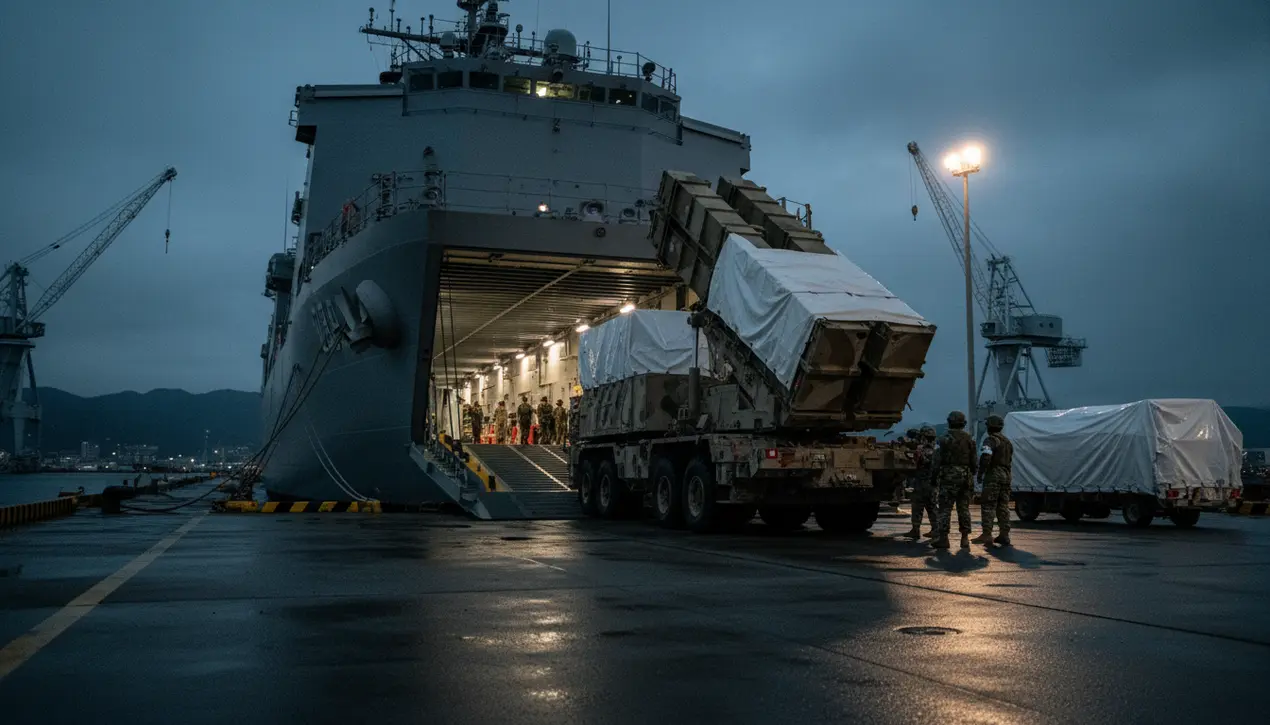
Politicsconflict & defenseMilitary Operations
US Withdraws Missile System from Japan Amid Taiwan Tensions.
OL
Oliver Scott
2 hours ago7 min read
The sudden and quiet withdrawal of the US Army's Typhon Mid-Range Capability missile launcher system from Japan's Iwakuni base is a geopolitical tremor whose aftershocks will be felt from the Taiwan Strait to the halls of Congress. This isn't merely a routine rotation following the 'Resolute Dragon 2025' exercises; it's a high-stakes recalibration, a signal flare in the escalating strategic contest between Washington and Beijing.The Typhon system, capable of launching both the SM-6 interceptor and the Tomahawk cruise missile, represents a significant escalation in offensive firepower, a weapon that could theoretically strike deep into mainland China. Its deployment in September was a clear, tangible response to growing Chinese assertiveness, placing a tangible asset within operational range.Its removal now, however, is a masterclass in strategic ambiguity. The official narrative will likely cite the conclusion of training, but the timing is conspicuously—and almost certainly intentionally—aligned with the diplomatic firestorm ignited by Japanese Prime Minister Fumio Kishida's recent, pointed remarks on Taiwan's security.This creates a multi-layered risk scenario: on one hand, the withdrawal could be a de-escalatory measure, a tactical pause to cool tensions and reassure a jittery region that neither the US nor Japan seeks a direct provocation. It offers Beijing a face-saving off-ramp, a chance to dial back its own heightened military activities.On the other hand, it could be a feint, a temporary pullback to obscure a more permanent and dispersed future deployment of such systems across a wider network of allied bases, perhaps in the Philippines or elsewhere in the First Island Chain, thereby complicating China's targeting solutions and enhancing regional resilience. The move forces analysts to weigh the immediate risk of miscalculation against the long-term strategy of denial.Historically, such calibrated moves have precedents; the withdrawal of US Jupiter missiles from Turkey following the Cuban Missile Crisis was a similar quid pro quo that defused an immediate crisis while setting a new strategic status quo. In this case, the Biden administration is walking a tightrope, attempting to demonstrate unwavering commitment to its Japanese ally and the defense of Taiwan's de facto autonomy, while simultaneously avoiding actions that could provide Beijing with a casus belli.The risk calculus involves not just military hardware but economic interdependence, with supply chains for everything from semiconductors to electric vehicle batteries hanging in the balance. The unspoken question now is what comes next. Does this withdrawal pave the way for a new round of diplomatic dialogue, or is it merely the intermission before a more dangerous act, one that might involve the permanent basing of even more advanced systems or a more explicit trilateral security pact between the US, Japan, and South Korea? The silence following the Typhon's departure is as telling as its arrival, a vacuum filled with the anxious speculation of strategists in Tokyo, Washington, and, most critically, Beijing.
#US military
#Japan
#missile system
#Taiwan
#geopolitics
#diplomacy
#featured
Stay Informed. Act Smarter.
Get weekly highlights, major headlines, and expert insights — then put your knowledge to work in our live prediction markets.
Comments
Loading comments...
© 2025 Outpoll Service LTD. All rights reserved.